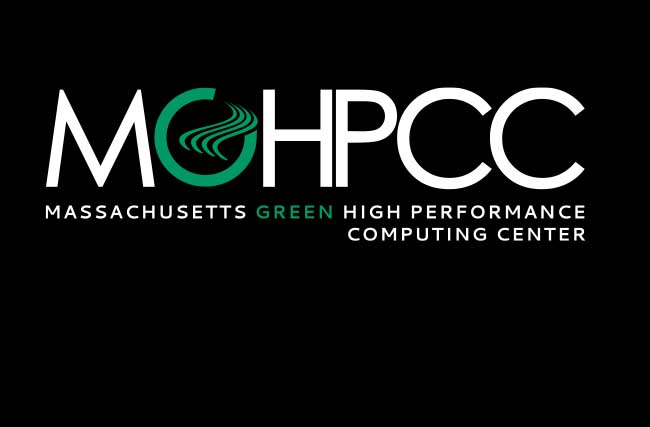
Northeast Cyberteam Will Share Approach to Spreading Best Practices, Advancing Scientific Inquiry
MGHPCC Press Release
Holyoke, Massachusetts, Sept. 21, 2020 – Educational tools designed to expand access to high performance research computing will be the focus of two presentations by the Northeast Cyberteam at the upcoming 2020 IEEE High Performance Extreme Computing Virtual Conference (HPEC), the largest computing conference in New England. The conference will take place from Sept. 21 through Sept. 25.
Computing has become central to nearly every scientific discipline. The Northeast Cyberteam, created with funding from the National Science Foundation (NSF), is a collaborative effort across Maine, New Hampshire, Vermont and Massachusetts that seeks to assist researchers at small and medium-sized institutions in the region while simultaneously building the next generation of Research Computing Facilitators (RCFs), the critical human link in the use of high performance computing for scientific research. The Cyberteam works by teaming student RCFs with mentors and subject matter researchers, and by sharing knowledge, resources and tools across the research computing community.
The Cyberteam will participate in two sessions at the conference on Sept. 23. At 2:15 p.m., John Goodhue, principal investigator of the Northeast Cyberteam and executive director of the Massachusetts Green High Performance Computing Center, will discuss “Building an Environment for Sharing Best Practices and Solutions for Research Computing”. At 6:35 p.m., Julie Ma, program manager for the Northeast Cyberteam, will present “Ask.CI and the Cyberteam Portal - Community building resources from the Northeast Cyberteam”.
Topics addressed will include capturing and disseminating best practices through such platforms and tools as the Cyberteam Portal, a platform for connecting people, learning resources and projects; and Ask.CI a crowd-sourced Q&A site.
“While the Northeast Cyberteam remains a regional effort, the tools and techniques it has developed are now being adopted beyond the Northeast,” Goodhue said. “Other NSF-supported projects have declared their intention to adopt the tools and methodologies of the Northeast Cyberteam and have begun the integration process. The result will be new content, new training modules, new projects and more mentor-RCFs – which will in turn advance research computing and scientific inquiry even further.”
“Given the scarcity of experienced RCFs and the ever-expanding range of opportunities to apply research computing, leveraging previously developed techniques is an effective strategy to advance science in a timely manner,” said Ma. “Our hope is that the Cyberteam Portal and Ask.CI not only become great resources, but also provide testimony to the importance of research computing and how it exists in relation to enterprise IT, computer science and domain research.”
About the Northeast Cyberteam
The Northeast Cyberteam is a three-year, NSF-funded initiative to make advanced computing more accessible researchers at small and mid-sized institutions in New England that do not have critical mass to support these resources on campus. It is led by a steering committee comprising leaders from each of the larger institutions that anchor the project: the Massachusetts Green High Performance Computing Center (MGHPCC), University of Vermont, Worcester Polytechnic Institute, University of Maine and the University of New Hampshire.
About the Massachusetts Green High Performance Computing Center
The Massachusetts Green High Performance Computing Center (MGHPCC) provides state-of-the-art infrastructure for computationally intensive research that is indispensable in the increasingly sensor and data-rich environments of modern science and engineering. Computers at the MGHPCC run millions of virtual experiments every month, supporting thousands of researchers in Massachusetts and around the world. The MGHPCC was developed through an unprecedented collaboration among the most research-intensive universities in Massachusetts (Boston University, Harvard University, the Massachusetts Institute of Technology, Northeastern University and the University of Massachusetts); the Commonwealth of Massachusetts; and private industry (Cisco and Dell EMC). The member universities fund the ongoing operation of the data center, which is open for use by any research organization.
###
Media Contact:
Jennifer Rosenberg
781-854-2997